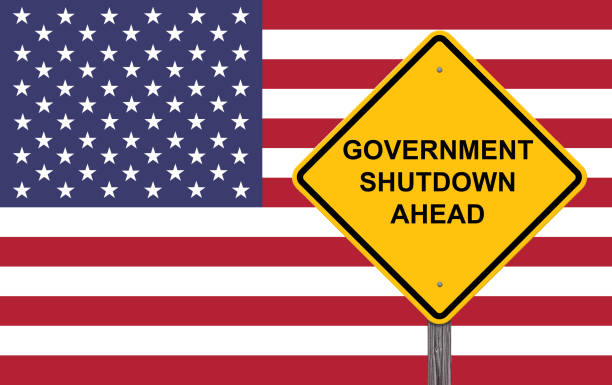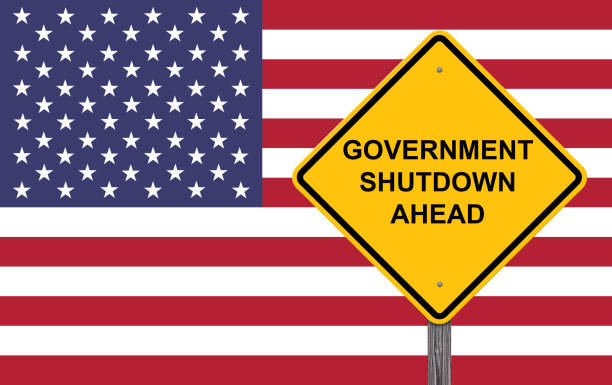If the U.S. government shut down . . . what to expect

Government Shutdown Ahead Caution Sign - Flag Background
The Biden administration told government agencies to begin preparing for a government shutdown on Sept. 22. Congress’ job is to create a funding plan that is signed by the president every year; without the funding plan, the government cannot continue providing budget allotments. A government shutdown will occur if Congress does not create a deal by Oct. 1.
On Friday Sept. 22, Congress members went home for the weekend, eight days before the potential shutdown. When they left, no funding plan had been created. In response to this, President Joe Biden took to Twitter.
“Last time there was a government shutdown 800,000 Americans were furloughed or worked without pay. But enjoy your weekend.” Biden posted.
Congress as a whole is attempting to make a deal with at least a small amount of funding in order to prevent a shutdown. Although with disagreements on spending between the parties, coming to an agreement is challenging. Congress has disagreed over the use of funds recently, one of the most prominent situations has been over how much money has been sent to aid Ukraine.
If the government shuts down, they will stop all non-essential spending until a plan is passed. Each governmental department has a list that specifies which jobs are deemed essential and which are deemed non-essential. The classified groups will determine which employees will be furloughed and which will continue to go to work without pay. Anyone whose job is to protect life and/or property, is considered to be essential and will work without pay. Governmental jobs where employees are considered non-essential will be furloughed in regards to the Antideficiency Act. All employees both furloughed and other, will be back paid for their missed paychecks.
A government shutdown would affect millions of people in the U.S., all government employees would be affected directly. A majority of the public would be affected as well. Places like national parks that are funded by the federal government would be forced to close down until the shutdown was lifted.
The public would also be affected in regards to travel for the upcoming holidays. Passport offices could be forced to close. In the 2019 government shutdown, airport employees threatened to walk out of work due to working without pay. This event was one of the main pushes for the government to reopen.
People who have children would also be affected. Food aid–such as food stamps–would continue, but the support amount would be lowered if the shutdown extends too long. Childcare that is funded by the government could also be forced to close if they offer grants. The White House has estimated around 10,000 children would no longer have access to childcare.
The most recent government shutdown was in 2018-2019. The shutdown lasted 34 days and was the longest one to date. The cause for that shutdown was due to former President Donald Trump’s request for $5.7 billion to fund the U.S.-Mexico border wall.





